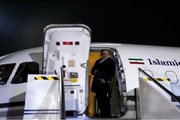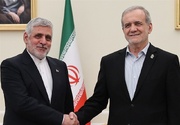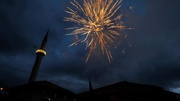The Palestinian Journalists’ Forum said in a statement that Mohammed Ba’lousha, a correspondent for the private Lebanese and Dubai-based al-Mashhad channel, lost his life on Saturday when an Israeli unmanned aerial vehicle launched an attack against an area in Gaza.
The non-governmental organization condemned “the international silence and failure to protect Palestinian journalists and ensure their ability to perform their professional duties in accordance with international laws and humanitarian conventions.”
An Israeli quadcopter targeted Ba’lousha’s home on Ahmed Yassin Street in the al-Saftawi neighborhood, north of Gaza City, local sources were quoted as saying.
Ba’lousha was previously injured on December 12, 2023, by an Israeli sniper.
The Palestinian journalist’s body arrived at Sheikh Radwan Clinic, northwest of Gaza City.
On Thursday, Reporters Without Borders (RSF) said Israeli military forces had carried out a “massacre” of Palestinian journalists in the Gaza Strip, killing an unprecedented number of media professionals.
An annual report published by the media freedom organization revealed that the Israeli army killed 18 journalists – two in Lebanon and 16 in Gaza – in the line of duty this year.
The toll, equivalent to around a third of the total worldwide of 54, was described by RSF as “an unprecedented massacre.”
“Palestine is the most dangerous country for journalists, recording a higher death toll than any other country over the past five years,” the organization said in its report, which covers data up to December 1.
In total, the report said, more than 145 journalists have been killed by the Israeli army in Gaza since the start of the war there in October 2023. Out of these, 35 journalists were killed while they were working.
RSF said it has compelling evidence that dozens of journalists in Gaza and Lebanon were targeted due to their profession, adding that it has submitted four war crime complaints against the Israeli army to the International Criminal Court (ICC).
Journalists working within the Gaza Strip encounter heightened risks while covering the genocidal war, particularly in light of Israeli ground offensives and airstrikes, as well as challenges such as disrupted communications, shortages of supplies, and power outages.
MNA/Press TV


























Your Comment